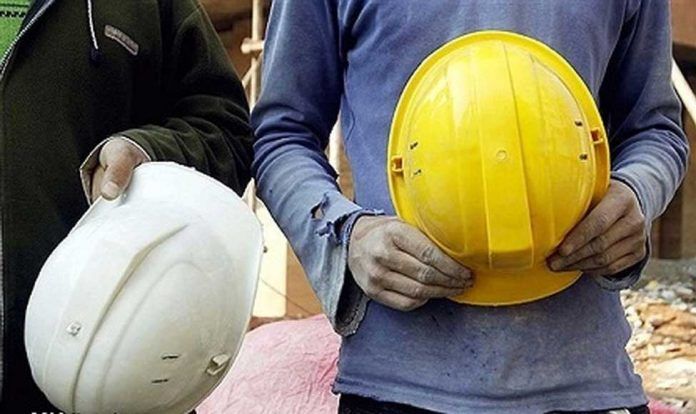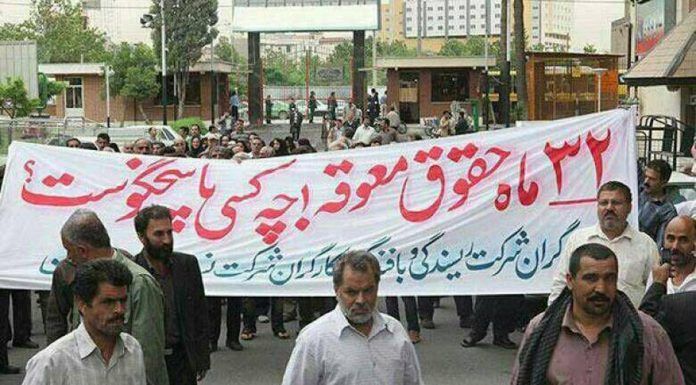By Kayhan Life Staff
Iranian workers face serious challenges, including low wages, fixed-term contracts, unsafe workplace environments, job insecurity, and a lack of benefits.
Millions of Iranian households live under the poverty line. The current average wage of an Iranian worker is 50 percent of the amount that is defined as the national poverty threshold. Rising inflation and the high cost of living have exacerbated challenging conditions for many workers and day laborers, particularly those on fixed-term employment contracts.
According to Ghorban Darvishi, a labor activist in the southwestern province of Khuzestan, people have few choices given the high cost of goods, and they only buy what they can afford.
Mr. Darvishi warned that a large segment of the Iranian population was heading towards absolute poverty, affecting the country’s entire economy.
Many workers, who already live in poverty, are owed months of back wages, making life extremely difficult for them and their families. Most of those working in industry and manufacturing on fixed-term contracts lack job security, insurance, pensions, or other benefits.
In comments reported by the Iranian Labor News Agency (ILNA) on April 20, Gholamreza Khavalgar, head of the Islamic Labor Councils Association of Gilan, said government agencies offered 10 types of contracts to workers.
“It is a shame that a worker with 25 years of service in government agencies should still be on a fixed-term contract that needs to be renewed every year,” Mr. Khavalgar said. “It makes no sense to offer fixed-term contracts in permanent jobs. Many government offices and organizations have exploited the situation by increasing the number of fixed-term contracts of their workers.”
Last fall, a job report said that 90 percent of workers in factories and workshops were on fixed-term contracts. Workers on fixed-term contracts do not receive benefits and can be fired without notice or severance pay. They also cannot collect unemployment benefits from the Department of Work, which is part of the Ministry of Labor and Social Affairs. According to Iranian labor laws, only workers with contracts that are 90 days or longer are entitled to unemployment benefits.
Years of labor disputes and economic hardship have taken a heavy emotional and psychological toll on workers.
“Workers who spend their best years toiling away have no life, and suffer from physical and psychological illnesses,” a report by ILNA on April 21 said. “They have neither the opportunity nor the motivation to seek help.”
More than half of Iranian workers receive the minimum wage, and even with a recent 57 percent increase, their income falls well below the poverty line and the cost-of-living index, the report added. Most workers must work longer than eight hours a day to make ends meet. Workers who put in 10-to-12-hour shifts are under tremendous physical and mental pressure.
According to the ILNA report, 95 percent of workers in Iran are on fixed-term contracts. They could be fired on the spot and with no advance notice if they complain about low wages, unsafe work environment, or lack of insurance and benefits. As a result, many workers endure unjust work conditions that only benefit the employer. Workers on short-term contracts have no legal recourse.
Fixed-term contracts empower employers and deprive workers of any rights or legal options. Such unjust work conditions and environment are detrimental to workers’ physical and mental well-being.
Workers in various parts of Haft Tapeh Sugarcane Agro-industrial Complex in Ahvaz, capital of Khuzestan Province, held protests on April 21 over fixed-term contracts, low wages, and their back pays.
The principal concern of seasonal workers is the lack of job security. Factory and business owners dictate the terms of temporary contracts. The workers fear they can be fired if they complain.
“The cost of living is rising every day. However, not only do our wages not go up, but we have not been paid for months,” a protesting worker at the Haft Tapeh Sugarcane Agro-industrial Complex said. “How can we live without our wages? Do the owners have no conscience? Can they not see the rising cost of [goods]? Why does no one answer our questions?”
EXCLUSIVE: Kayhan Life Interviews Iran’s Striking Oil Workers



